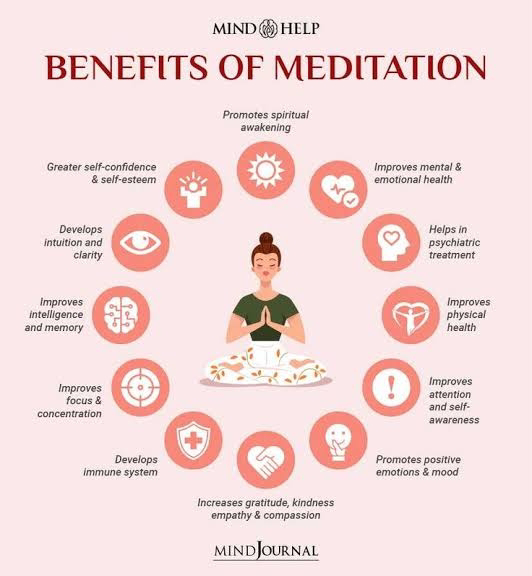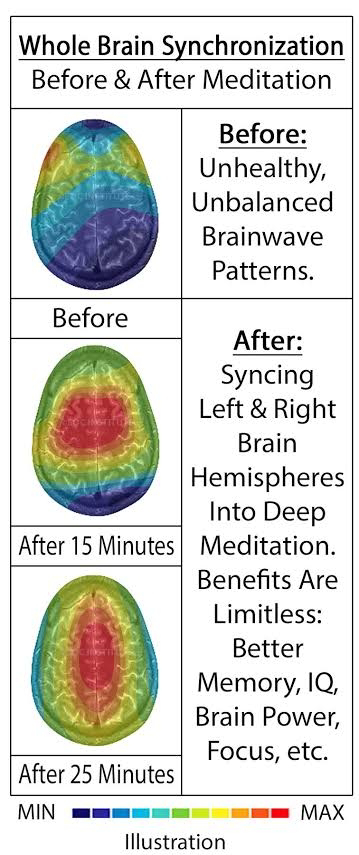Meditation a powerful remedy

Meditation is more than just a buzzword in wellness circles; it is a practice with profound benefits for both the mind and body. As modern life becomes increasingly hectic, meditation offers a sanctuary of peace and clarity. In this blog, we’ll explore what meditation is, its benefits, and how you can start incorporating it into your daily routine.
What is Meditation?
Meditation is a practice that involves focusing the mind and eliminating distractions to achieve a state of mental clarity and emotional calm. While it has roots in ancient spiritual traditions, meditation today is often practiced as a secular activity to enhance well-being.
Types of Meditation
There are many types of meditation, but some of the most popular include:
1. Mindfulness Meditation: Focuses on being present in the moment, observing thoughts and sensations without judgment.
2. Guided Meditation: Involves listening to a guide or recording that leads you through the meditation process.
3. Transcendental Meditation: Uses a mantra or repeated phrase to help the mind settle into a state of deep rest.
4. Loving-Kindness Meditation: Focuses on developing feelings of compassion and love towards oneself and others.

Benefits of Meditation

Mental Health
1. Reduces Stress: Meditation helps activate the body’s relaxation response, reducing stress hormones like cortisol.
2. Improves Concentration: Regular meditation enhances your ability to focus and maintain attention.
3. Enhances Emotional Health: Meditation can increase positive emotions, reduce symptoms of depression, and promote emotional stability.
4. Reduces Anxiety: Mindfulness and other forms of meditation help reduce symptoms of anxiety disorders.
Physical Health
1. Lowers Blood Pressure: Meditation can help reduce high blood pressure, improving heart health.
2. Enhances Immunity: Regular meditation has been shown to boost the immune system.
3. Improves Sleep: Meditation can help with insomnia and improve the overall quality of sleep.
4. Alleviates Pain: Mindfulness meditation has been found to help manage chronic pain.
How to Start Meditating
Starting a meditation practice is simple and doesn’t require any special equipment. Here’s a basic guide to get you started:
1. Find a Quiet Space: Choose a place where you won’t be disturbed. It doesn’t need to be completely silent, but a calm environment helps.
2. Get Comfortable: Sit or lie down in a comfortable position. You can use a chair, cushion, or even the floor.
3. Set a Time Limit: If you’re new to meditation, start with just 5-10 minutes. Gradually increase the duration as you become more comfortable.
4. Focus on Your Breath: Close your eyes and take deep, slow breaths. Focus on the sensation of the air entering and leaving your body.
5. Notice Your Thoughts: As you meditate, your mind will wander. When this happens, gently bring your focus back to your breath.
6. Be Consistent: Try to meditate at the same time every day. Consistency is key to developing a lasting practice.
Tips for Success
– Start Small: Don’t worry about meditating for long periods initially. Even a few minutes a day can make a difference.
– Use Apps: Meditation apps like Headspace, Calm, and Insight Timer can provide guidance and structure.
– Join a Group: Meditating with others can provide motivation and support.
– Be Patient: Meditation is a skill that takes time to develop. Be patient with yourself and enjoy the process.
Conclusion
Meditation is a powerful tool that can transform your mental and physical health. By incorporating just a few minutes of meditation into your daily routine, you can experience significant benefits and find a greater sense of peace and well-being. Whether you’re looking to reduce stress, improve concentration, or simply find a moment of calm in a busy day, meditation is a practice that can support you on your journey to better health.
Ready to start your meditation journey? Share your experiences and tips in the comments below!

